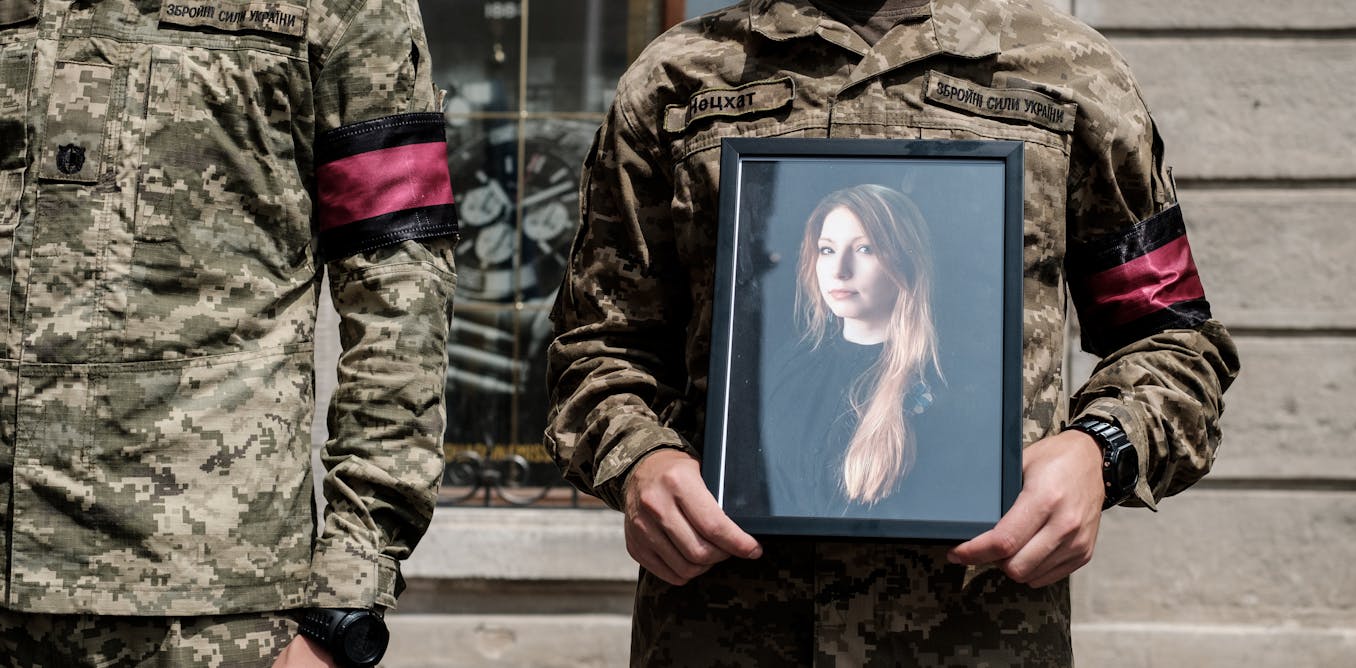Top 11 Celebrity Beauty Brands
In recent years, the beauty industry has witnessed a transformative shift as celebrities transition from brand ambassadors to brand founders. No longer content with merely endorsing products, these stars are leveraging their personal brands and massive followings to launch their own beauty lines.
This evolution has not only disrupted traditional marketing models but also introduced a wave of innovation and inclusivity in product offerings. In this article, we delve into the that are redefining the industry landscape—much like how Sephora’s marketing strategy revolutionized beauty retail and brand partnerships.
Contents
Successful celebrity beauty brands often share key traits: authenticity, innovation, and inclusivity. Authenticity builds trust when celebrities actively participate in product development and brand messaging. Innovation keeps the brand relevant through unique formulations or packaging. Inclusivity ensures products cater to diverse skin tones and types. For example, Fenty Beauty by Rihanna set a new standard with its broad foundation shade range, emphasizing diversity and reshaping industry norms.
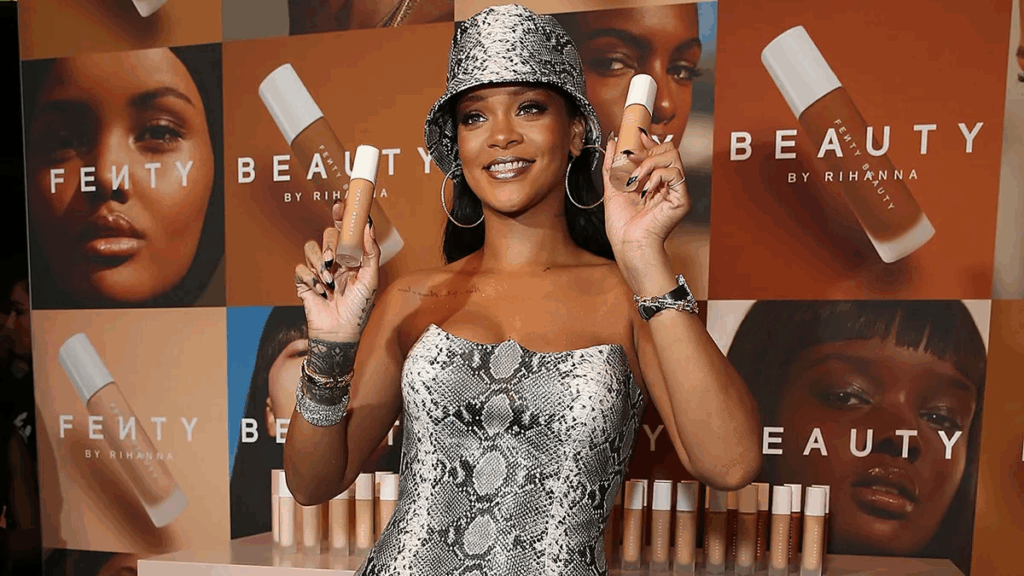
Launched in 2017 in partnership with LVMH’s Kendo division, Fenty Beauty set a new standard for inclusivity with its groundbreaking 40-shade foundation range. The brand’s debut generated $100 million in sales within its first few weeks and recorded $72 million in earned media value in its first month. By 2018, Fenty Beauty’s revenue reached approximately $573 million, and it was named “Brand of the Year” at the WWD Beauty Inc Awards. Rihanna’s active involvement and the brand’s commitment to diversity have made it a global powerhouse in the beauty industry.
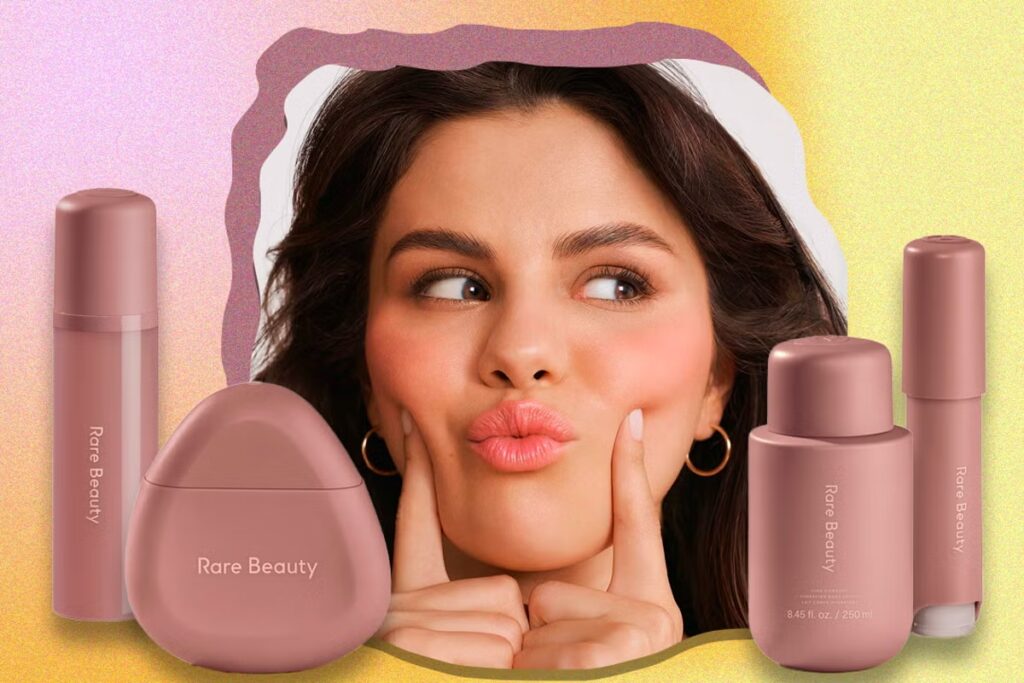
Founded in 2020, Rare Beauty emphasizes self-acceptance and mental health awareness. Its hero product, the Soft Pinch Liquid Blush, sold 3.1 million units in 2022, generating approximately $70 million in revenue. Rare Beauty’s commitment to inclusivity and authenticity has resonated with consumers worldwide, contributing to Selena Gomez’s estimated net worth of $1.3 billion by 2024.
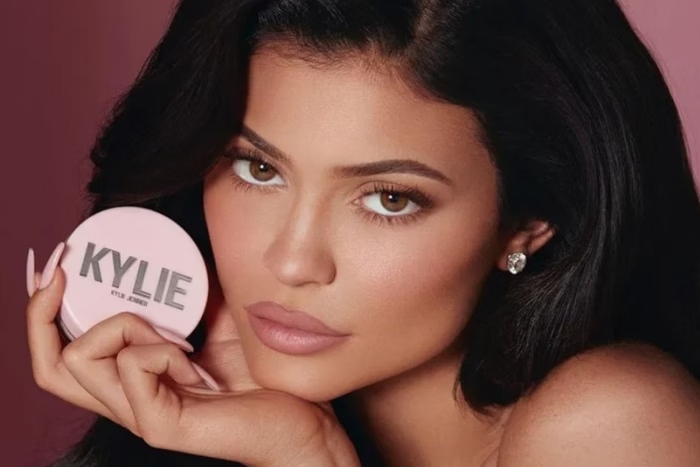
Kylie Cosmetics debuted in 2015 with the launch of the Kylie Lip Kit, which sold out within minutes. By 2016, the brand had generated over $300 million in revenue. In 2019, Kylie sold a 51% stake to Coty for $600 million, valuing the company at $1.2 billion. The brand’s rapid growth and strategic partnerships have solidified its position in the beauty industry, mirroring trends seen in Maybelline’s marketing strategy with influencer-driven campaigns and product virality.
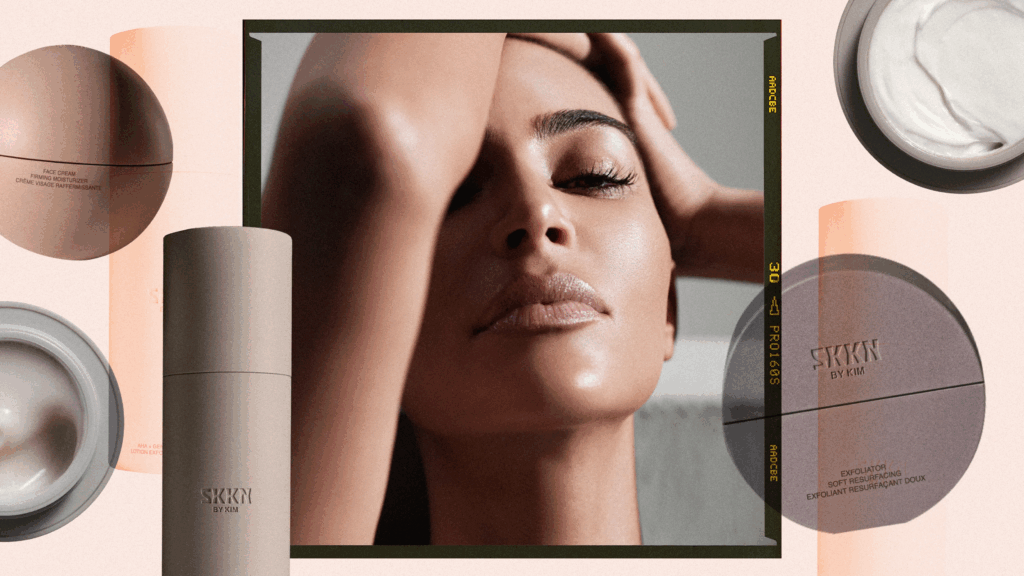
Launched in 2022, SKKN by Kim offers a nine-step skincare regimen developed in partnership with Coty. The brand focuses on clean, high-performance products with refillable packaging. In 2024, Coty sold its 20% stake back to Kim’s company, Skims, consolidating her beauty and fashion ventures.
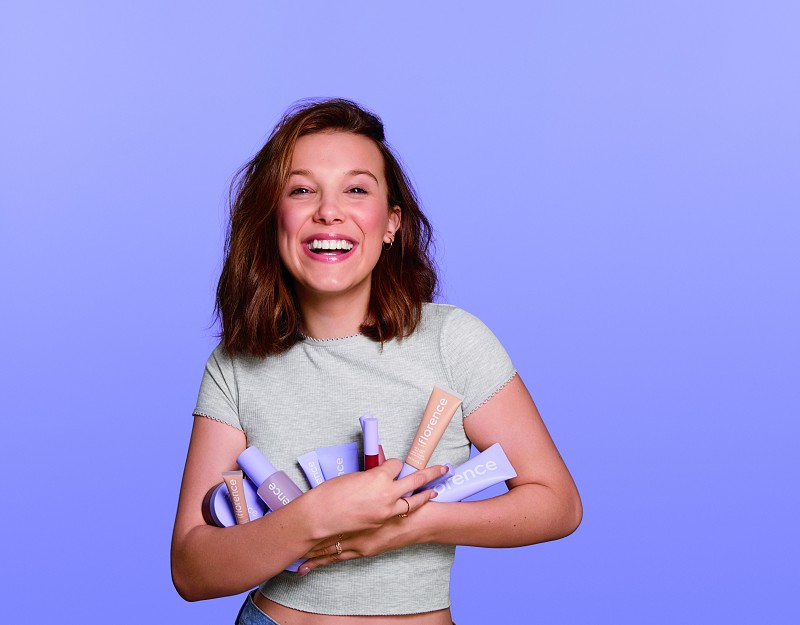
Introduced in 2019, Florence by Mills targets Gen Z with clean, vegan, and cruelty-free products—similar to how Ulta Beauty positions itself to attract younger, values-driven shoppers through curated product lines. The brand’s offerings include skincare, makeup, and haircare items. In 2023, Florence by Mills expanded into fragrance with the launch of “Wildly Me.” The brand reported revenues between $20 to $30 million in 2023.
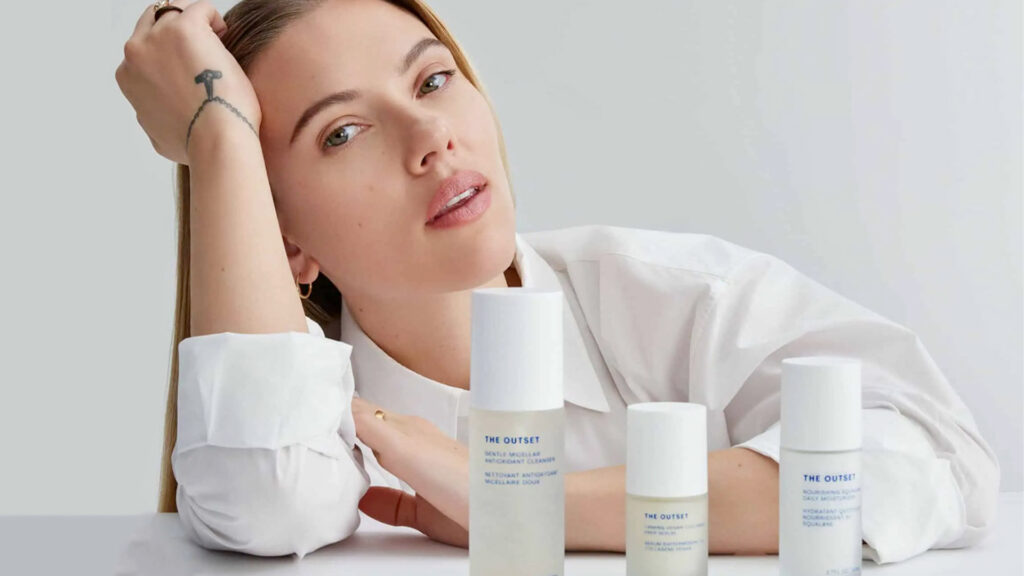
Scarlett Johansson’s The Outset launched in March 2022, focusing on minimalist, clean skincare essentials. The brand’s core products include a cleanser, serum, and moisturizer, all designed for sensitive skin. The Outset emphasizes simplicity and efficacy in its formulations. In 2023, it was awarded Best New Brand by Allure Readers’ Choice Awards.
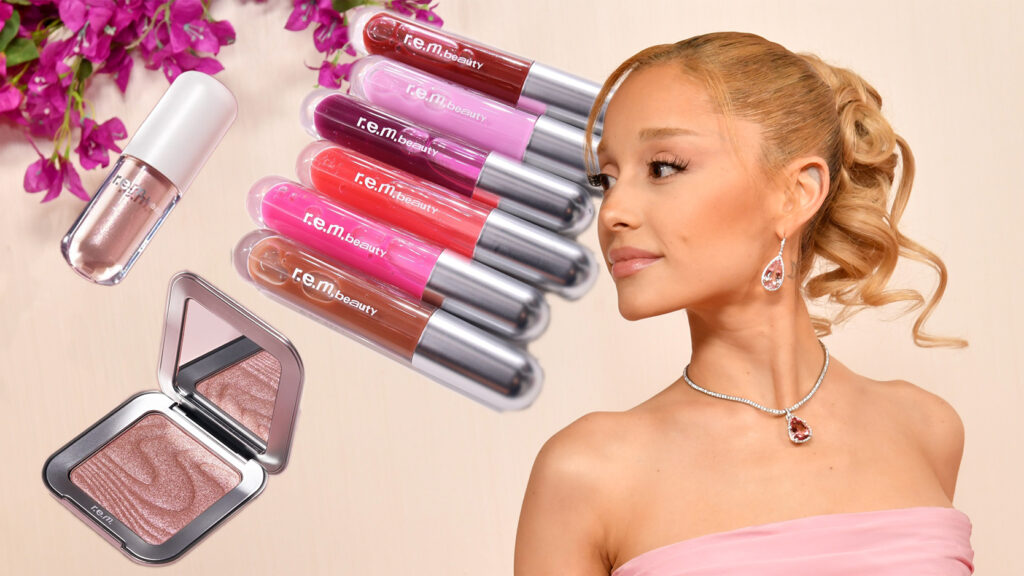
Launched in November 2021, r.e.m. beauty offers a range of vegan and cruelty-free makeup products. The brand’s aesthetic draws inspiration from Ariana Grande’s music and personal style. In 2024, r.e.m. beauty achieved a valuation of over $500 million, reflecting its rapid growth and popularity.
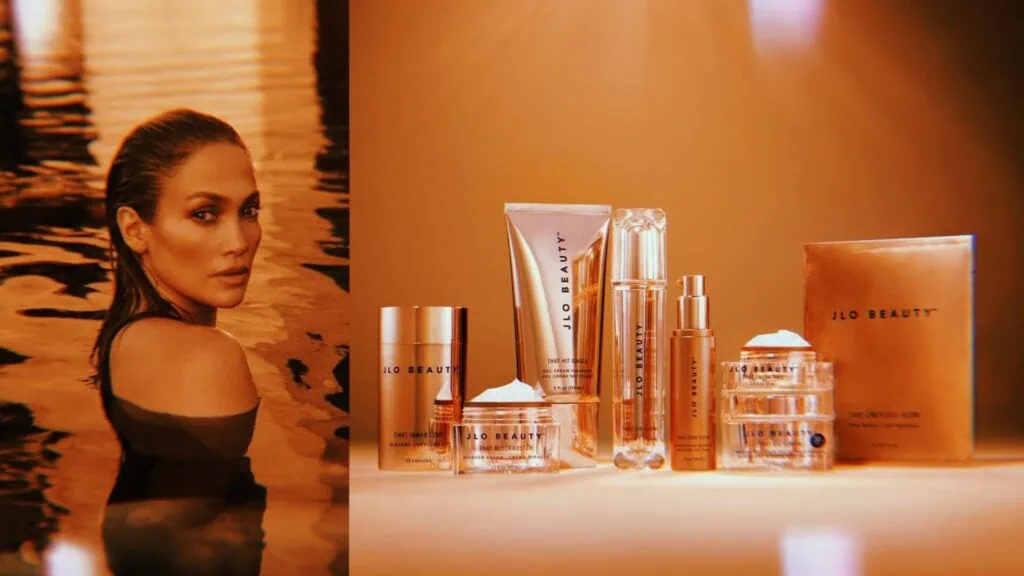
Jennifer Lopez introduced JLo Beauty in 2021, focusing on skincare products that promote a youthful glow. The brand’s offerings include cleansers, moisturizers, and serums. Despite initial success, JLo Beauty exited Sephora’s U.S. stores in 2024 but continues to be available online and at select retailers.
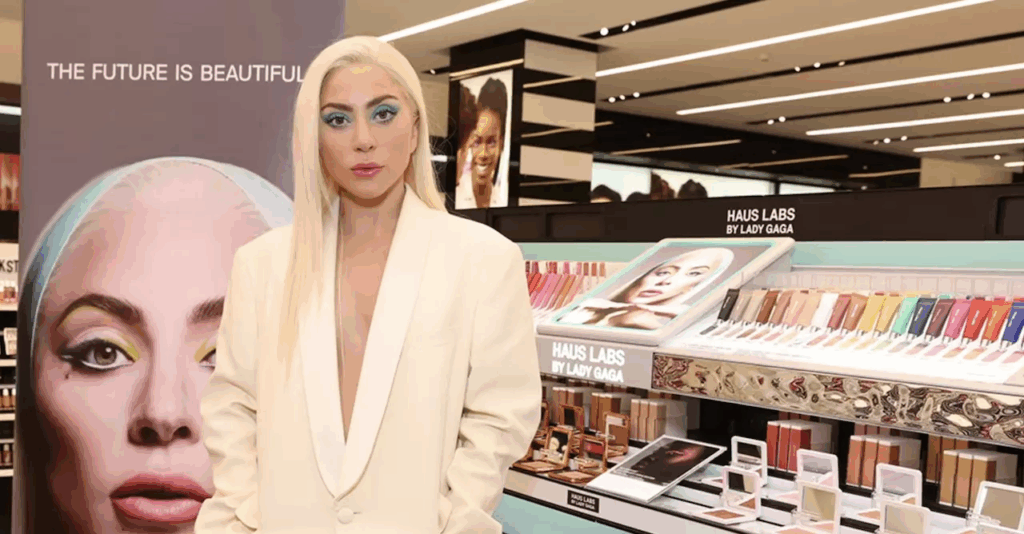
Haus Labs, founded by Lady Gaga in 2019, emphasizes self-expression and creativity through makeup. The brand offers a wide range of products, including lipsticks, eyeshadows, and foundations. Haus Labs is known for its bold colors and inclusive marketing campaigns.
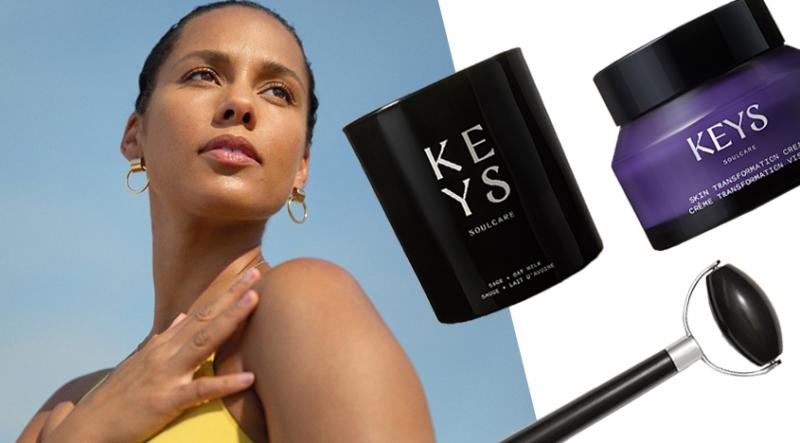
Launched in 2020, Keys Soulcare blends skincare with wellness rituals, promoting a holistic approach to beauty. The brand’s products, such as the Skin Transformation Cream and Let Me Glow Illuminating Serum, are formulated with clean ingredients and affirmations to nurture both skin and soul.
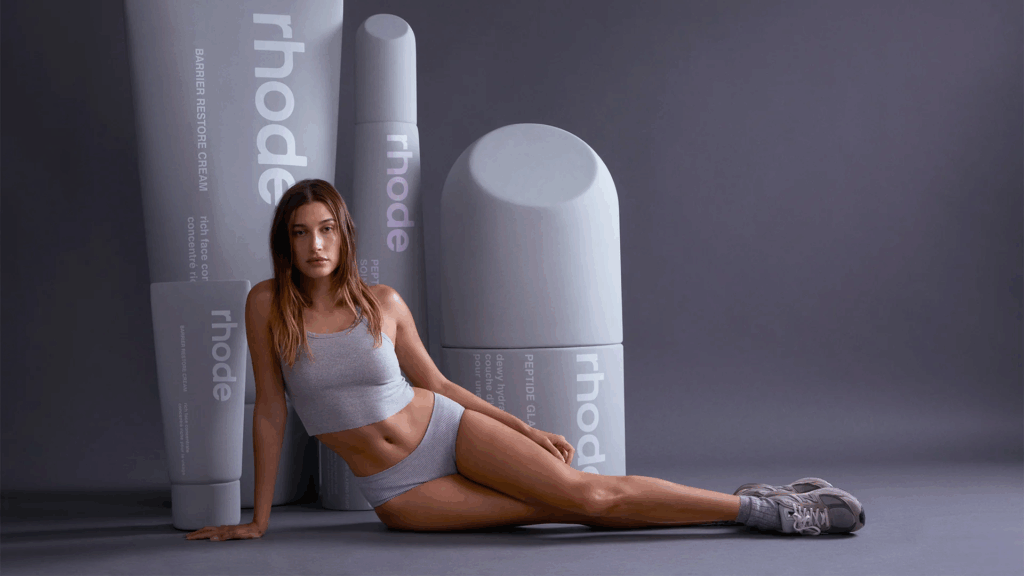
Founded in 2022, Rhode focuses on minimalist skincare essentials like the Peptide Glazing Fluid and Barrier Restore Cream. The brand achieved significant success, leading to its acquisition by e.l.f. Beauty in 2025 for up to $1 billion. Hailey Bieber remains actively involved as Chief Creative Officer and Head of Innovation.
As the beauty industry evolves, celebrity-led brands are at the forefront of embracing and setting new trends. Here are three key movements shaping the landscape in 2025:
Modern consumers are increasingly eco-conscious, demanding products that are both effective and environmentally responsible. Celebrity brands are responding by emphasizing clean formulations and sustainable practices. For instance, Kylie Cosmetics has introduced a vegan, refillable lip kit line, reflecting a commitment to reducing environmental impact. Similarly, Fenty Beauty has expanded its skincare line with eco-friendly packaging and ingredients, aligning with the growing demand for transparency and sustainability.
The line between beauty and wellness continues to blur, with brands focusing on holistic approaches that prioritize skin health and overall well-being. Keys Soulcare by Alicia Keys exemplifies this trend by offering products infused with affirmations and rituals aimed at nurturing both the skin and the soul. Similarly, Rhode by Hailey Bieber emphasizes minimalist skincare essentials designed to promote healthy, radiant skin, catering to consumers seeking simplicity and efficacy in their routines.
Inclusivity remains a cornerstone of successful beauty brands, with a focus on catering to diverse skin tones and types. R.E.M. Beauty by Ariana Grande has expanded its foundation range to 60 shades, ensuring a match for a wide array of skin tones. Moreover, the integration of technology, such as AI-powered skin analysis tools, is enabling brands to offer personalized product recommendations, enhancing the consumer experience and fostering brand loyalty.
The rise of celebrity-led beauty brands has transformed the cosmetics industry, with celebrities leveraging their influence to create authentic, inclusive, and innovative products. Brands like Fenty Beauty, Rare Beauty, and Rhode have set new standards in product quality, branding, and social engagement, resonating with diverse consumer bases. These ventures demonstrate that when celebrities align their personal values with their brands, they can achieve remarkable success and drive meaningful change in the beauty landscape.







